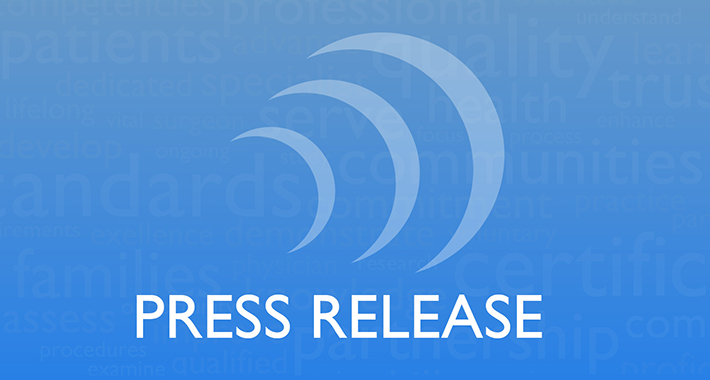
American Board of Preventive Medicine Sponsored the Application Allowing Physicians Certified by ABMS Member Boards to Apply for the New Certificate
The American Board of Medical Specialties (ABMS) officially recognized Addiction Medicine as a subspecialty at its October 2015 Board Meeting in Dallas, Texas. The American Board of Preventive Medicine (ABPM), a Member Board of ABMS, sponsored the application for the subspecialty to allow physicians certified by any of the 24 ABMS Member Boards to apply for the new certificate.
“Substance use and addiction are serious health problems of enormous proportion and impact in this country and on our society,” stated ABMS President and Chief Executive Officer, Lois Margaret Nora, MD, JD, MBA. “By offering a certification in this important subspecialty we continue in our role to assure patients and their families that their physician meets the high standards of practice and clinical knowledge, and has completed an approved educational program in this important medical field.”
Addiction Medicine is defined as the prevention, evaluation, diagnosis and treatment of persons with the disease of addiction, of those with substance-related health conditions, and of people who show unhealthy use of substances including nicotine, alcohol, prescription medications and other licit and illicit drugs. Physicians specializing in this field also help family members whose health and functioning are affected by a loved one’s substance use or addiction.
It is estimated that 16 percent of the non-institutionalized U.S. population age 12 and over – more than 40 million Americans – meets medical criteria for addiction involving nicotine, alcohol or other drugs. This is more than the number of Americans with cancer, diabetes or heart conditions. Of those who need treatment, few receive evidence-based care. In 2014, 22.5 million people in the United States needed treatment for a substance use disorder (SUD) involving alcohol or drugs other than nicotine, but only 11.6 percent received any form of inpatient, residential, or outpatient treatment. Of those who do receive treatment, few receive evidence-based care.
“ABMS recognition allows physicians from any of the 24 Member Boards to become board certified in this new subspecialty. This also will allow the community to seek accreditation by the Accreditation Council on Graduate Medical Education for addiction medicine fellowship programs,” said ABPM Board Chair, Denece O. Kesler MD, MPH. “Increasing the number of well trained and certified specialists in addiction medicine will significantly increase access to care for those in need of intervention and treatment. The acknowledgement of this field as a subspecialty will have a significant impact in the ability of the healthcare community to address a disease with far reaching effects on patients, communities and society as a whole.”
ABPM is continuing to work on the implementation details of the new subspecialty, including the development of the first board certification exam. Announcements regarding the exam and related details will be shared as available.
ABPM has certified physicians since 1949 and participates as a Member Board of ABMS. ABPM specialties include Aerospace Medicine, Occupational Medicine, and Public Health and General Preventive Medicine, as well as the subspecialties of Clinical Informatics, Medical Toxicology and Undersea and Hyperbaric Medicine.
Download ABMS Officially Recognizes Addiction Medicine as a Subspecialty[PDF]
-
Read More:
- Press Releases |
